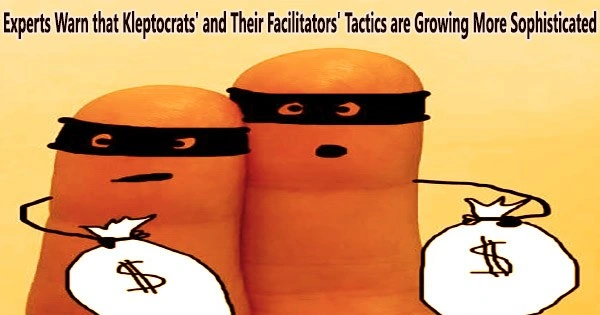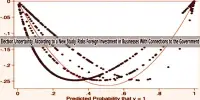Experts have cautioned that international analyses of corruption cannot accurately depict the increasingly sophisticated ways that wealthy individuals from rogue nations use global networks to manage illegal resources.
Lawyers and professional enablers are used to help disintermediate the shady origins of funds and convert them to spendable and protected assets, as well as recasting public images.
The use of philanthropy rather than politics to alter public perception of nations and people is growing.
The systematic employment of wealth managers, accounting firms, international bankers, citizenship managers, brokers, lobbyists, public relations specialists, and lawyers is not taken into account by global corruption rankings.
The study describes this era of reputation laundering as ‘transnational uncivil societies.’ Beyond personal gain, transnational uncivil societies seek to further authoritarian and kleptocratic authority as well as political objectives. TUSNs act against transnational activists through private investigators, the issuance of INTERPOL warrants, regional policing mechanisms and the courts.
The study, by Alexander Cooley from Barnard College, John Heathershaw from the University of Exeter and Ricardo Soares de Oliveira from the University of Oxford, is published in the European Journal of International Relations.
Transnational uncivil societies seek to protect their own exclusive national sovereignty and regime authority at home, while eroding popular sovereignty in overseas liberal democracies by securing the right of residency and nurturing clientelistic ties and influence. Cumulatively, these networks of elites, foundations and private service professionals enhance the authority and legitimacy of uncivil elites, helping to blunt other actual advocacy campaigns.
Professor Alexander Cooley
Professor Heathershaw said, “This is a growing type of conflict in global politics. Kleptocrats eject liberal activists from their own territories and create new spaces to whitewash their own reputations and build their own transnational networks. To do so, they hire political consultants and reputation managers, engage in public philanthropy and forge new relationships with major global institutions.”
“These strategies of reputation-laundering are neither illicit nor marginal, but very much a product of the actors, institutions and markets generated by the liberal international order.”
The story demonstrates how these connections between elites, attorneys, and others may start out as contractual but eventually turn into clientelistic as one side learns more about the “grey” and unlawful actions of the other.
While “strategic lawsuits against public participation” (SLAPPs) are also increasingly used in the United Kingdom to ensnare civil society and media organizations in protracted and uncertain legal processes that effectively stifle the free speech required for advocacy campaigns, reputation management is used in a targeted and aggressive manner as part of transnational uncivil society.
Elites exploit sovereign rights to travel to or live in the West by joining the diplomatic corps, obtaining citizenship or a foreign address, or by taking part in investor visa or second passport programs.
Professor Cooley said, “Transnational uncivil societies seek to protect their own exclusive national sovereignty and regime authority at home, while eroding popular sovereignty in overseas liberal democracies by securing the right of residency and nurturing clientelistic ties and influence.” “Cumulatively, these networks of elites, foundations and private service professionals enhance the authority and legitimacy of uncivil elites, helping to blunt other actual advocacy campaigns.”
















